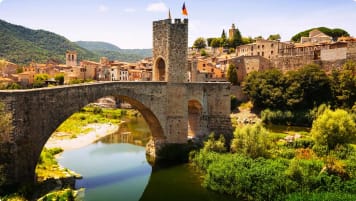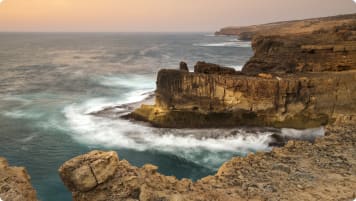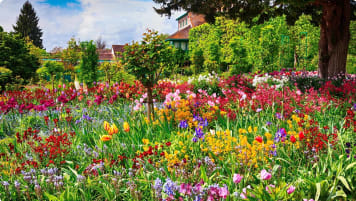Explore the History, Culture & Wildlife of West Africa: Ghana, Togo & Benin
This small group tour for couples and solo travelers concentrates on the history, culture and wildlife of coastal Central Africa. Meet the friendly local people and come to a greater understanding of just what has made them what they are today.
From €9,612EUR
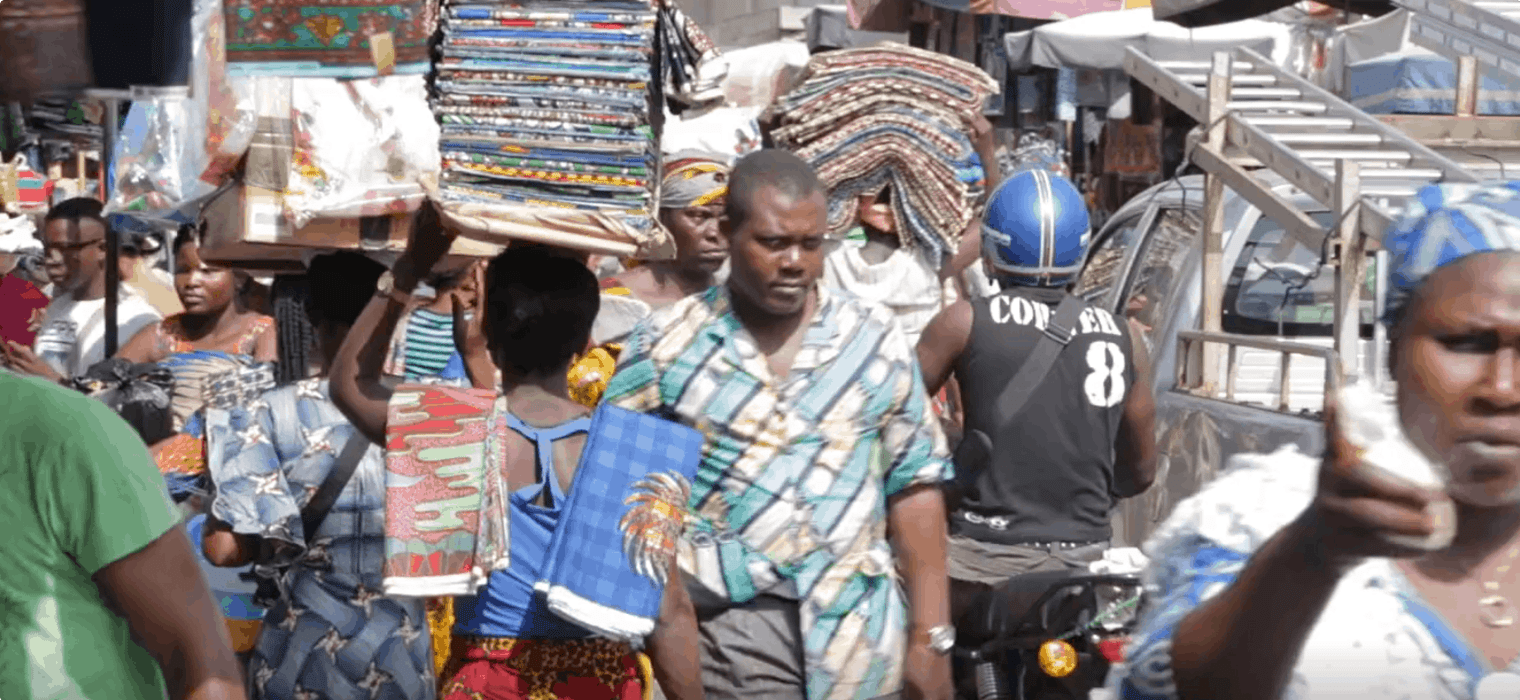
Highlights
- 1. Observe and learn about the sacred Voodoo shrines side by side with a Roman Catholic Cathedral.
- 2. Gain an insight into the slave trade at Cape Coast Castle.
- 3. Enjoy spotting unique indigenous wildlife in Pendjari National Park.
- 4. Visit the Batammariba people and learn about the design history of the mud tower houses.
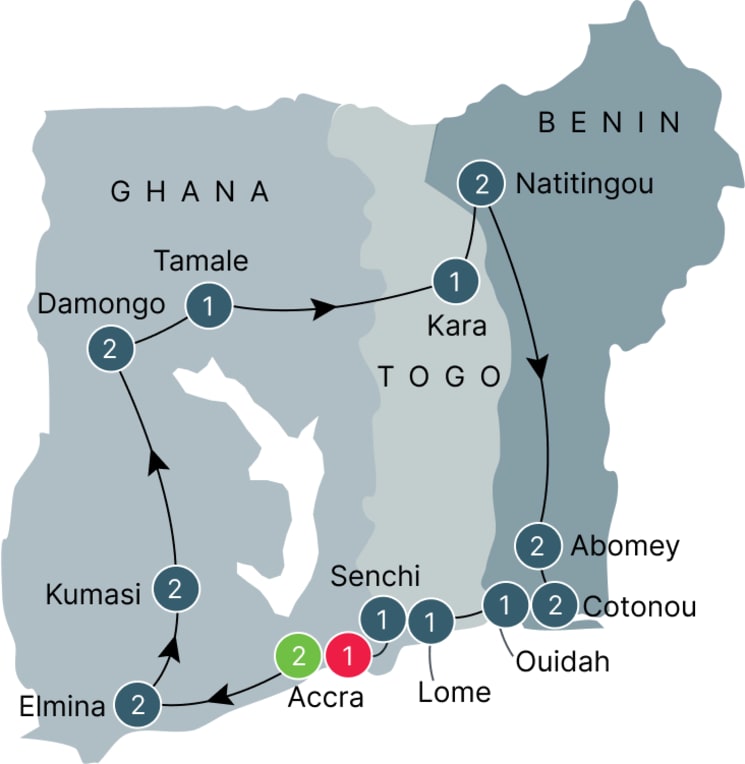
Departure Dates
| Departure Date | Price |
|---|---|
| 29 September 2025 Ends 19 October 2025 • 21 days €9,612 Twin €11,901 Single Guaranteed | Selected |
| 04 May 2026 Ends 24 May 2026 • 21 days €9,978 Twin €12,270 Single Available | |
| 28 September 2026 Ends 18 October 2026 • 21 days €9,978 Twin €12,270 Single Available |
Small Group Tour of West Africa for the adventurous senior traveller.
Odyssey offers easy, convenient, and relaxed escorted small group tours across the world, including to Ghana, Togo and Benin. We explore the natural beauty, its ancient heritage, its World Heritage Sites, and famous cities, all with some truly spectacular scenery along the way across these three countries. This and more is all waiting to be explored on one of Odyssey’s small group tours of Ghana, Togo and Benin, designed for the senior traveller, and led by experienced, and enthusiastic like minded tour leader and guides.
This small group tour to Central West Africa has been specially designed for the mature traveller. Those with a sense of adventure and a desire to explore this exciting but infrequently visited region. Ghana, Togo and Benin may be off the usual tourist route, but each has much to offer the discerning visitor. Our tour concentrates on the history, culture and wildlife of these African countries. Meet the friendly local people and come to a greater understanding of just what has made them what they are today.
Small group tours to Ghana, Togo, Benin
This small section of Africa has a fascinating, if often tragic, past. Colonial powers including the Portuguese, French, Germans and British all fought for control of this gateway into the rich African interior. It was from here that enormous numbers of slaves were shipped to Europe and the Americas from the 16th to the 19th century. On our tour we will visit some of the well preserved "Slave Castles" to witness this infamous part of European history.
The pre-colonial past is also fascinating. Local kingdoms existed from very early times. Our trip explores the culture and history of a number of different groups. In Benin, for example, we will visit the mud tower houses of the Batammariba people. Take time to trace the history of Somba culture in the Natittingou Museum. A Gelede masked dance ceremony will give us an insight into local traditions dating back to the 15th century.
Ghana, Togo and Benin offer a diverse range of cultures and activities in what is actually quite a small region. There are long, palm fringed, sandy beaches, dense rain forests, teeming cities and exotic wild life parks. These countries all suffer from great poverty but each is attempting to escape from their economic hardships through a variety of strategies, including increased tourism. Become a part of the solution!
Our tour itinerary
We spend much of our time in Ghana. With a population of 25 million, Ghana gained independence from Britain in 1957, and is today considered one of the most stable democracies in West Africa. Gold, cocoa and more recently oil, formed the cornerstone of the nation's economic boom. The country has much to offer the visitor including historic fortifications, diverse wildlife and vibrant cities. We visit the coffin makers of Nungua, where coffins are made to reflect a person's interests - leading to colourful and quirky shapes including fish, race-cars, and even a coca-cola bottle! (For more information, take a look at this Guardian piece). We also head to Kumasi, where we join the Akwasidae festival - a traditional gathering of chiefs and members of the Asanteman.
We then continue on to Benin, where we learn about Voodoo. Our tour unpacks the usual cliches - sinister cults and magic - portrayed in Hollywood movies. Voodoo is followed by 40% of the population, while many Christians and Muslims incorporate voodoo rituals into their belief systems. We also visit the Pendjari National Park, one of the best wild life parks in West Africa, where lions, cheetahs, leopards and elephants thrive.
Our journey also heads to Togo, which was once a German Protectorate but was ceded to the French and British after World War I, before eventually receiving independence. A long, thin nation sandwiched between Ghana and Benin, Togo is home to a surprising diversity of landscapes and cultures. The nation has a population of more than seven million. In Togo, we discover the country's artistic traditions and colonial past at the National Museum of Lome and shop for traditional artistic objects and other souvenirs at the Grand Market.
For more details about this tour, click the ‘Top 5’ or ‘Itinerary’ buttons above! If you’re keen to experience this tour, please call or send an email. Or, to book, simply fill in the form on the right hand side of this page. We also have a number of other Africa tours, for travellers interested in exploring the world's least-touristed continent.
Gallery
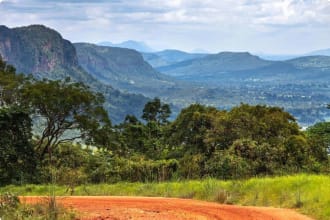
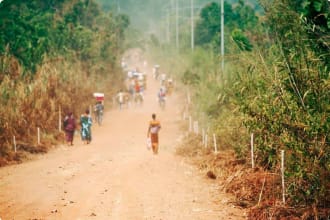
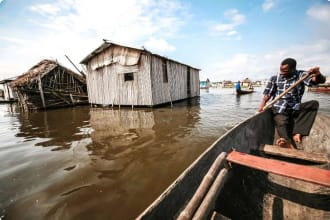
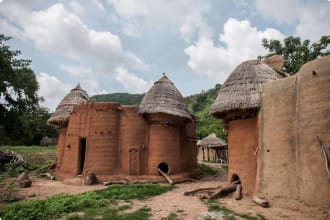
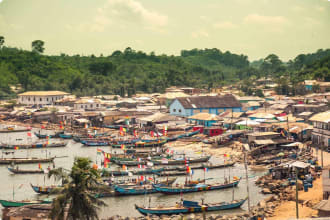
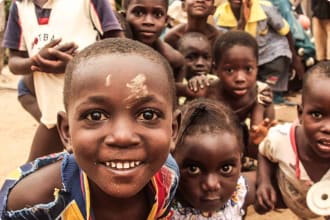
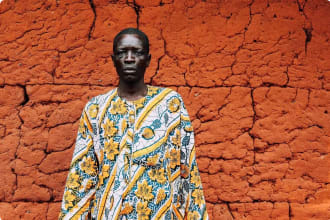
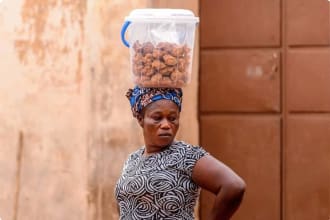
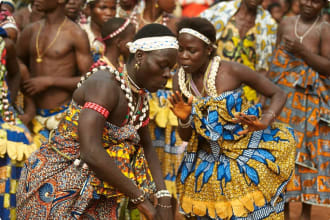
Itinerary
21 days
Day 1: Accra
Accommodation: Labadi Beach Hotel 5* or similar
Group members should make their own way to our Accra hotel and meet with their program leader in the late afternoon for a brief tour introduction followed by a welcome dinner at the hotel.
Day 2: Accra
Accommodation: Labadi Beach Hotel 5* or similar
After breakfast this morning we meet with our local guide for a day spent exploring Accra and some of its many fascinating tourist destinations.
Start by visiting the National Museum and then continue to the colourful Makola Market. From there we head through the High Street to see the Holy Spirit Cathedral before going on to Jamestown, the ‘original Accra’ with its old streets, 19th century lighthouse and Dutch built Ussher Fort. For a great view of the city, climb to the top of the old lighthouse near Portuguese built James Fort.
Continue to the Kwame Nkrumah Mausoleum (the final resting place of Dr Kwame Nkrumah, Ghana’s first President). We will also visit the nearby Arts Centre for National Culture. We drive by Independence Square and the Osu Castle to the Artists Alliance Art Gallery.
Jamestown
Jamestown originated as a community that emerged around the 17th-century British James Fort, merging with Accra as the city grew. These days, Jamestown is one the poorer neighbourhoods of Accra.
Makola Market
There is no front door or welcoming sign to the Makola Market. Before you know it, you’ve been sucked in by the human undertow from the pavements clogged with vendors hawking food, second-hand clothes, shoes and so much more.
Kwame Nkrumah Park and Mausoleum
This tranquil park is full of bronze statues, fountains and wandering peacocks, with the mausoleum of Kwame Nkrumah, Ghana’s first leader, at its heart.
National Museum
Set in pleasant grounds, the national museum features excellent displays on various aspects of Ghanaian culture and history. The displays on local crafts, ceremonial objects and the slave trade are particularly noteworthy.
Independence Arch
This imposing arch adjacent to Independence Square is crowned by a large black star, Ghana’s national symbol. Note: taking photos is forbidden.
Day 3: Accra to Elmina
Accommodation: Coconut Grove Beach Resort 3* or similar
After breakfast this morning meet your guide and depart for the Central Region (160 km).
We start the day with a visit to the Coffin makers of Nungua (Paa Joe), where coffins are made to reflect a person’s affiliations and interests.
Continue to visit the ruins of Fort Amsterdam in Anomabo & Nassau in Moree. On arrival, we visit the Kakum National Park comprising undisturbed virgin rainforest for a walking tour on the canopy walkway. This is the longest and highest of its kind in the West Africa.
The forest provides an opportunity to see much of Ghana’s indigenous plant life, as well as rare butterflies, birds and other forms of wildlife.
We stop over at Hans Botel, a resort partly built on stilts on a river with crocodiles and lots of bird life.
Day 4: Elmina
Accommodation: Coconut Grove Beach Resort 3* or similar
This morning we take a trip to the Cape Coast Castle (Cabo Corso) a fortress that was built by the Swedes in 1653, seized by the Danes and later conquered by the British. This castle was one of around 40 “slave castles” that served as prisons and embarkation points for slaves en route to the Americas. Thousands of enslaved Africans from regions near and far were taken to these castles to be sold to slave ships.
We continue to the Elmina Castle, founded by the Portuguese in 1482. We’ll enjoy a walk through the Elmina Township and fish market to view some houses built in colonial style including the Dolphin house, Churches and the Dutch Cemetery.
Cape Coast Castle and Elmina Castle are the best-preserved castles in Ghana and declared as UNESCO World Heritage sites. Both castles are located in thriving fishing ports where hundreds of huge wooden fishing canoes are anchored.
In the evening we have dinner together followed by a cultural performance.
Day 5: Elmina to Kumasi
Accommodation: Golden Tulip Kumasi City Hotel 4* or similar
After an early breakfast at the resort we depart to Kumasi.
On arrival, we visit the Manhyia Palace to join in the Akwasidae celebration – a gathering of Chiefs and people of the Asanteman.
Our group will have the chance to meet and greet the Asantehene and make a presentation of Schnapps. By tradition, one needs to present at least 2 bottles of schnapps as guests to a Chief’s Palace. So our group will be introduced by a linguist and possibly invited to shake hands with the sitting Chief.
Day 6: Kumasi
Accommodation: Golden Tulip Kumasi City Hotel 4* or similar
Breakfast at the Hotel
We begin our day with a visit to the craft villages of Ahwiaa (wood carving) and Ntonso (Adinkra), to see traditional craftsmen apply their skills and talents.
We will also visit Lake Bosomtwi, a crater lake believed to have been created by a fallen meteorite.
Day 7: Kumasi to Damongo
Accommodation: Zaina Lodge 4* or similar
After breakfast we set off for the Northern Region in the early morning with a stopover at the Kintampo Waterfalls. (390 km)
En route, we also visit the Boabeng Fiema Monkey Sanctuary, where Mona and black and white Colobus monkeys are considered to be a significant part of the community. Also visit the Tano Boase Rock formation, which exhibits a variety of huge beautiful hanging and hollow rocks.
Explore the sacred groves and caves, where villagers sought refuge during slave raids and tribal wars. We take a hike along the trails to spot antelopes, baboons and monkeys.
We continue our trip northwards to Mole with stops at mud villages with straw roofs along the route.
End the day with a sundowner on the deck of the Zaina pool.
Day 8: Damongo
Accommodation: Zaina Lodge 4* or similar
We start the day with a morning safari drive and spend the rest of the day at the park, home to 93 species of mammals including herds of elephant, buck and a wide range of bird life.
Lunch will be at the Lodge.
In the afternoon we visit a nearby traditional village.
Dinner at the Lodge
Day 9: Damongo to Tamale
Accommodation: Gariba Hotel 3* or similar
In the morning we depart the loge and transfer to Tamale. (130 km)
Tamale is the capital city of the Northern Region of Ghana, known for its traditional mosques, particularly the large Central Mosque.
Visit the Central Market where they sell a variety of goods from fabric to fruits.
We end the day at the Centre for National Culture, where various handicrafts are for sale. We also attend a traditional music and dance performance
Day 10: Tamale to Kara
Accommodation: Hotel Kara 3* or similar
After breakfast we depart and make our journey across the border to Kara in Togo.
On our way we visit some settlements of Dagomba and Konkomba tribes as well as stopping for a visit to the Bassar people.
We drive through mountainous landscapes and villages to Bandjeli, a village in the centre of metal works.
Day 11: Kara to Natittingou
Accommodation: Hotel Tata Somba 3* or similar
Today we transfer to Natittingou (125 km), and cross the border into Benin.
We’ll visit the Batammariba people and their mud tower houses (Takienta). The surrounding nature is also strongly associated with the traditional rituals and beliefs. Continue to the Tata Somba miniature villages, located to the southwest in the plains of Boukoumbe.
Our group will also visit the Natittingou Museum for an interesting overview of the Somba culture, retracing the history and heritage of the Atakora civilization.
Day 12: Natittingou
Accommodation: Tata Somba 3* or similar
Today we experience the wild beauty of this northern territory. We start with a visit to Pendjari National Park; one of West Africa’s surviving tropical forests. At the entrance of the park we’ll pause to view the Tanougou falls.
We take a walk through this forest, where you have a good chance of spotting elephants, buffaloes, hippos, crocodiles, lions, warthogs, monkeys, antelopes and other exotic wildlife.
Day 13: Natittingou to Abomey
Accommodation: Hotel Sun City 3* or similar
We take an early breakfast today as we have long day of travel ahead when we transfer to Abomey (425 km).
En route, we visit the fascinating Taneka villages for a guided tour.
We also visit the Chief’s palace on arrival before taking a tour of the village.
Abomey is known for its famous and historically significant traditional sites such as the Royal Palace and Museum (a designated UNESCO World Heritage Site). Every new king added his own residence within the palace grounds, resulting in 12 palaces in the empire at its peak. Currently, only two of them remain. Visit the royal palaces and learn more about the powerful kingdom of the Fon people, who founded the Dahomey Empire.
Day 14: Abomey
Accommodation: Hotel Sun City 3* or similar
This morning we visit the Royal Palace Museum and the History Museum of Abomey, which has been on UNESCO’s World Heritage list since 1985.
We will also visit the underground town of Agongointo in Bohicon. It consists of a series of bunkers and other housing structures around 10m deep underground, built in an apparent effort to provide dwelling as well as protection for warriors in an underground village. We continue with a drive through this ancient city.
Our day ends with a Gelede masked dance ceremony.
The Gelede mask ceremony is pre-arranged and takes place in Cove, a town near Abomey. It consists of a group of colourfully dressed dancers wearing masks. The tradition dates back to the 15th century and only men initiated into a ‘secret society’ can perform the dances which represent both men and women. The performance relays the virtues and responsibilities of society. The Society actively condemns all kinds of social immorality by subjecting it to public ridicule during the dance.
Day 15: Abomey to Cotonau
Accommodation: Maison Rouge Hotel 4* or similar
After breakfast in our hotel we transfer to Cotonou, (135 km), via Allada (the homeland of Toussaint Louverture, the first president of Haiti and home place to the kingdoms of Benin).
The day of spectacular sightseeing continues as we visit Ganvie, described as the ‘Venice of Africa’, with 25,000 inhabitants living in houses on stilts above the water since the 17th century.
A small group of people, outside of what is now Cotonou, took advantage of circumstances to evade capture by the Portuguese. Roughly 400 years ago the powerful West-African Fon tribe was hunting and selling other native tribesman to the Portuguese. While there were few physical impediments protecting the ancestors of today’s Ganvie village from outside attack, Fon religious practice forbade their raiders from advancing on any peoples dwelling on water, laying the groundwork for the Ganvie Lake Village.
After our arrival at the hotel you have the opportunity to enjoy a possible cruise on Lake Nokoue to visit the water villages (own cost).
Day 16: Cotonou - Porto-Novo- Cotonou
Accommodation: Maison Rouge Hotel 4* or similar
This morning after breakfast we transfer to Porto-Novo, located only a short drive away. We explore Porto-Novo, the capital of Benin, although the second largest city. Named by the Portuguese in the 1500s, Porto-Novo (New Port) still today shows significant Portuguese influences.
Many Afro-Brazilians settled in Porto-Novo following their return to Africa after emancipation in Brazil. We will visit the vibrant market, the Ethnographic museum and the Grand Mosque, formerly a church designed in Brazilian style. We also visit the Da Silva Museum and the 300 year-old Palace of King Toffa. The former residence of King Toffa is now officially called Musee Honme and retraces the history of Porto-Novo.
Day 17: Cotonou to Ouidah
Accommodation: Hotel Casa del Papa 3* or similar
After breakfast this morning at the hotel we transfer to Ouidah (40km). We drive through the city to explore the infamous Portuguese slave fort, the Basilque de l’Immaculee, Place Chacha (Slave market), the L’arbre de l’Oubli, History museum and the Zomai house on the slave route.
We ten continue to the “Temple des Pytons” (temple of pythons), the Sacred Forest and The Door of No Return, the stronghold of Ouidah now converted into a museum.
Ouidah is best known for its central role in the slave trade during the 17th, 18th and 19th centuries, during which time nearly 0ne million individuals were boarded onto ships from the beach at Ouidah and transported across the Atlantic.
Ouidah is the centre of the Vodun religion in Benin, and arguably the world. In 1992 Ouidah held the first international festival of dedicated to the art and culture of Vodun. In addition, the annual Festival of Vodun on January 10 at Ouidah has been declared a national holiday.
Day 18: Ouidah to Lome
Accommodation: TBA
This morning we transfer to Lomé, crossing back into Togo (115 km).
We enjoy a tour of the city, which includes the Place de l’Independence and the National Museum. The National Museum exhibits a fascinating display of African jewellery, masks, musical instruments and pottery. You will also have the chance to observe sacred voodoo shrines side by side with the city’s Roman Catholic Cathedral.
Next, we visit the Lomé central market, or Grand Marché, where pearls, baskets, pottery and sacred pieces are on display. It is possible to shop for traditional tonics and bizarre items like serpent heads, parakeet tails, warthog teeth and porcupine skins. Here, too, you’ll find a selection of ready-made charms from all over Africa.
Lomé is the capital and largest city of Togo and is known for its palm-lined Atlantic coastline. Once known as the Paris of West Africa, Lomé is one of the continent’s most charming cities. Lomé is loved for its craft markets, board boulevards, vibrant nightlife and palm fringed beaches.
Day 19: Lome to Senchi
Accommodation: Royal Senchi Resort or similar
This morning after breakfast we cross the border into Ghana and transfer to Senchi (257km). We arrive in the afternoon and we have a boat ride along the Volta River to visit some of its islands.
The rest of the day is at leisure, giving you the chance to take a stroll to the nearby fishing villages or just take a rest at the hotel.
Day 20: Senchi to Accra
Accommodation: Labadi Beach Hotel 5* or similar
After some free time today to continue exploring at own pace, we’ll meet for our transfer back to Accra in the late afternoon (85 km). We’ll arrive in time to freshen up before our farwell dinner at the hotel.
Day 21: Accra
Our tour concludes at the hotel after breakfast.
Includes / Excludes
What’s included in our Tour
- Ground transportation in air-conditioned coach.
- 20 breakfasts, 10 lunches, and 10 dinners.
- Services of local guides.
- Field trips, entry fees to parks and attractions as indicated.
- Game drives and boat cruises (unless specified otherwise)
- 20 nights of accommodation in 3 and 4 star hotels and game lodges
- Services of a Tour Leader.
- Detailed tour information booklet.
- Tipping
What’s not included in our Tour
- Return international airfare and departure taxes.
- Items of a personal nature such as telephone calls and laundry.
- Comprehensive travel insurance.
- Visas for entry (where/if required)
Participants must be able to carry their own luggage, climb and descend stairs, be in good health, mobile and able to participate in 3-5 hours of physical activity per day, the equivalent of walking / hiking up to 8 kilometers per day on uneven ground.
Book now
Make it a private tour
Easing your journey
Crossing international borders with restrictions
The list of requirements to travel internationally has changed and will continue to change for several years. Odyssey is here to assist you in managing your way through these requirements:
For more information see our Crossing international borders with restrictions page.
Book With Confidence
If less than 30 days before your tour starts you are unable to travel as a result of Government travel restrictions, Odyssey Traveller will assist you with a date change, provide you with a credit or process a refund for your booking less any non-recoverable costs.
See Terms and conditions for details.
Peace of Mind Travel
The safety of our travellers, tour leader, local guide and support staff has always been our top priority and with the new guidelines for public health and safety for keeping safe for destinations around the world, we’ve developed our plan to give you peace of mind when travelling with us.
See Peace of Mind Travel for details.
Reading List Download PDF
Themes in West Africa's History
Emmanuel Kwaku Akyeampong
There has long been a need for a new textbook on West Africa's history. This comprehensive collection brings together leading scholars on key themes from West Africa's prehistory to the present. It discusses various disciplinary approaches to West African history, provides overviews of the literature on major topics, and breaks new ground through the incorporation of original research.
Part one provides perspectives on West Africa's history from archaeology, ecology and culture, linguistics, and oral traditions. Part two provides longue duree perspectives on environment, society, agency and historical change. Part three examines how economic and political developments have shaped religious expression and identity in significant ways. At the end of each chapter is a short list of recommended reading.
Africa: A Modern History
Guy Arnold
The end of the Second World War signalled the rapid end of the European African empires. In 1945, only four African countries were independent; by 1963, thirty African states created the Organization of African Unity. Despite formidable problems, the 1960s were a time of optimism as Africans enjoyed their new independence, witnessed increases in prosperity and prepared to tackle their political and economic problems in their own way.
By the 1990s, however, the high hopes of the 1960s had been dashed. Dictatorship by strongmen, corruption, civil wars and genocide, widespread poverty and the interventions and manipulations of the major powers had all relegated Africa to the position of an aid 'basket case', with some of the world's poorest and least-developed nations.
By exploring developments over the last fifteen years, including the impact of China, new IT technology and the Arab Spring, the rise of Nigeria as Africa's leading country and the recent refugee crisis, Guy Arnold brings his landmark history of modern Africa up to date and provides a fresh and insightful perspective on this troubled and misunderstood continent.
Benin History, Dahomey and Women Warriors: Life before Colonization, People and Tradition
Sampson Jerry
Benin is a tiny country in West African region bordered with Nigeria, little is known about this country, its history, culture, people, and tradition, here you have the entire history of republic of Benin, starting from the first day of this country, how the country came to exist, and the people that made up that country, the strong solders of this empire, who are known as Women warriors, a lot is reviewed in this book for your information need
Ghana - Culture Smart!: The Essential Guide to Customs & Culture
Ian Utley
The "Gateway to Africa," Ghana welcomes around a million tourists, aid workers, and business travelers a year—visitors who invariably come away with glowing reports of a fertile land, tropical scenic beauty, rich culture and traditions, and many first-rate tourist attractions. It is, however, the Ghanaians themselves who make the biggest impression. It is through their hospitality and love of peace that Ghana has a claim to be the safest and friendliest country in Africa. Ghanaians are welcoming to foreign guests, respectful to each other, strong followers of tradition, and have deep familial and communal values. For most visitors, Ghana comes as a wonderfully refreshing change, with valuable lessons to teach the outside world. Ghanaians like to do things their own way, and Ghana is a proud country that does not cater exclusively to tourists but rather expects them to fit in with the Ghanaian pace and way of life. Thus a visit to Ghana is not without its downsides, and visitors can experience frustrations and barriers. This revised and updated edition of Culture Smart! Ghana explains the complexities and nuances of Ghanaian society with clarity and humor. Visitors are expected to be sympathetic to their customs and beliefs, and their hosts will have no hesitation in saying, "We don't do that here," should a faux pas be made or a taboo broken. It is important to Ghanaians that they, and their guests, follow certain rules and codes of conduct. Culture Smart! Ghana describes these rules, explains where they come from, helps to disperse the frustrations and barriers, and offers the reader an opportunity to enjoy more fully all that this beautiful country has to offer.
Homegoing
Yaa Gyasi
Effia and Esi: two sisters with two very different destinies. One sold into slavery; one a slave trader's wife. The consequences of their fate reverberate through the generations that follow. Taking us from the Gold Coast of Africa to the cotton-picking plantations of Mississippi; from the missionary schools of Ghana to the dive bars of Harlem, spanning three continents and seven generations, Yaa Gyasi has written a miraculous novel - the intimate, gripping story of a brilliantly vivid cast of characters and through their lives the very story of America itself.
Epic in its canvas and intimate in its portraits, Homegoing is a searing and profound debut from a masterly new writer.

